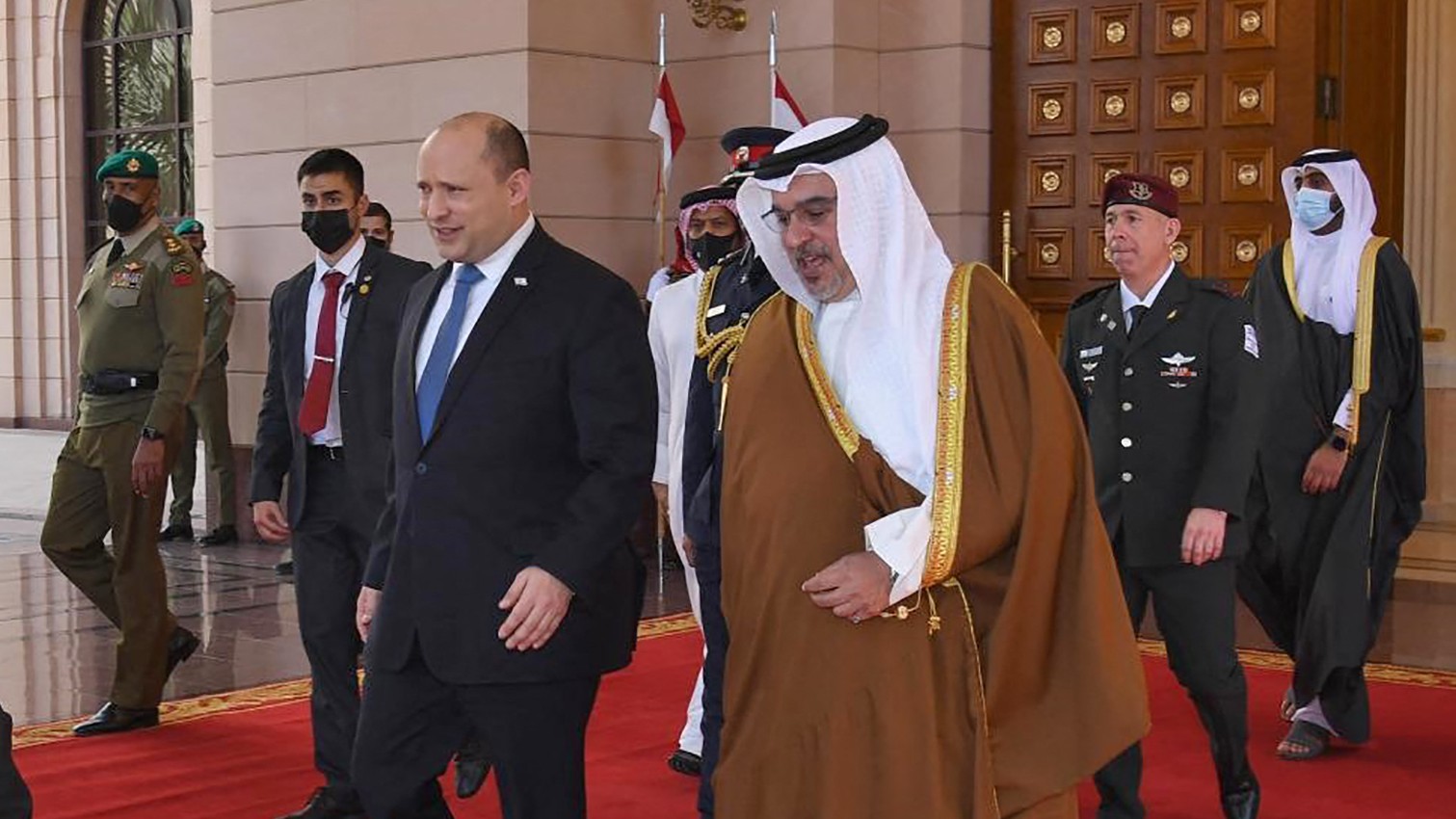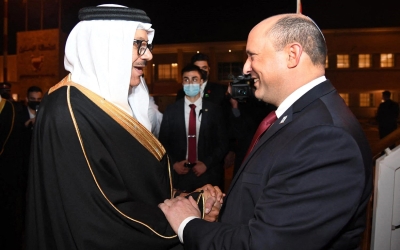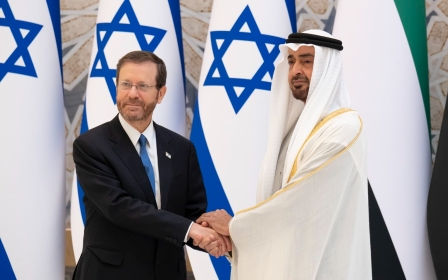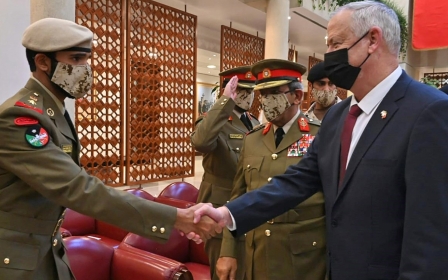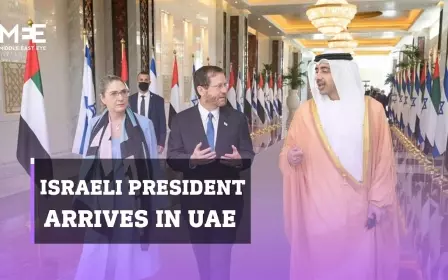Israel's Bennett lays into Iran on first official trip to Bahrain
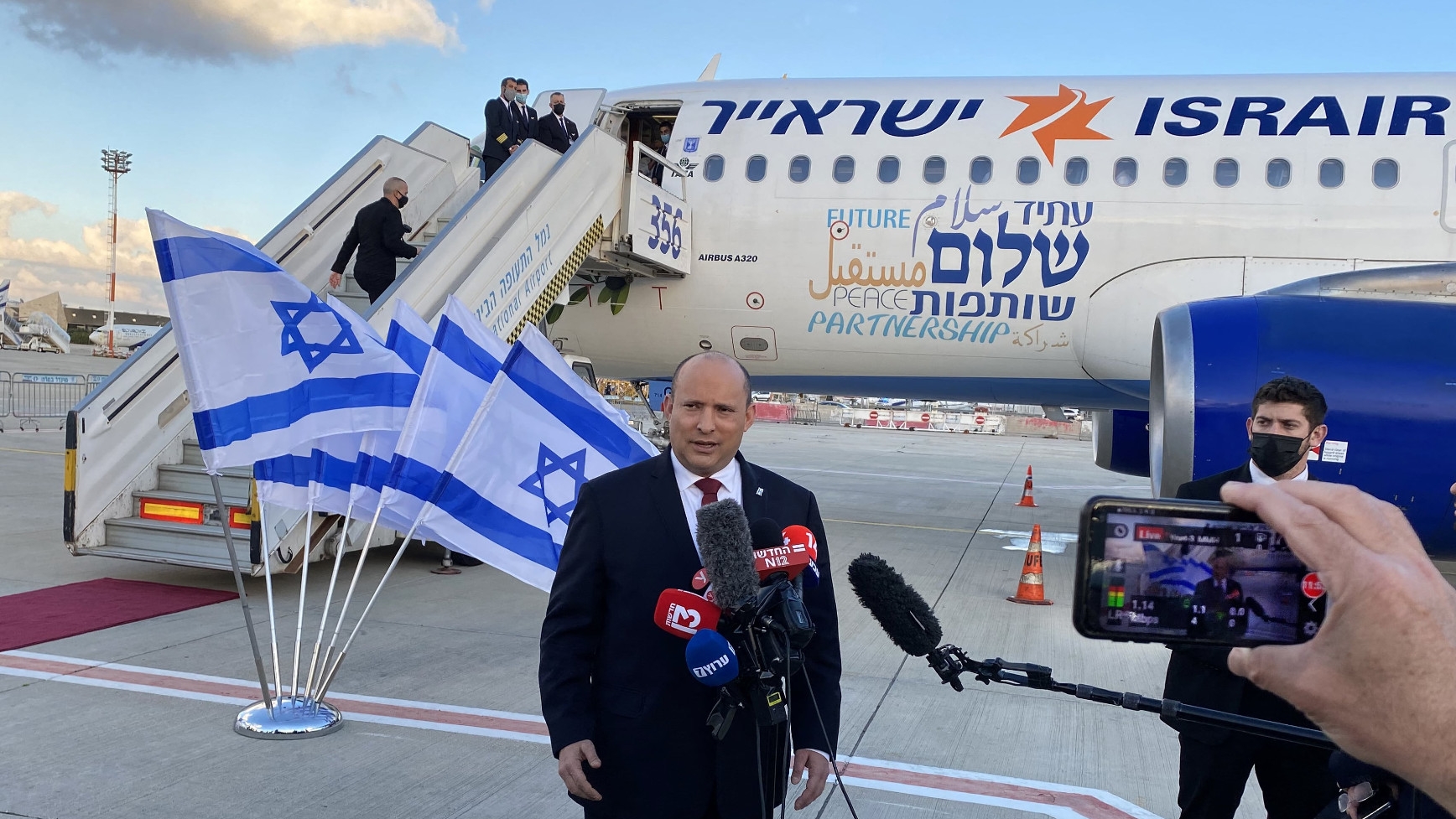
Israel's Prime Minister Naftali Bennett vowed on Tuesday during his trip to Bahrain that his country will continue to confront Iran and aid "friends... whenever we are asked to help".
Bennett's remarks were made to Bahraini newspaper Al-Ayam during his visit to the oil-rich island kingdom.
The trip is the first by an Israeli premier since the two countries normalised ties in September 2020.
His comments come as the United States is ramping up efforts to revive the 2015 nuclear agreement with Tehran, which he warned would be "a strategic mistake".
New MEE newsletter: Jerusalem Dispatch
Sign up to get the latest insights and analysis on Israel-Palestine, alongside Turkey Unpacked and other MEE newsletters
"This deal will enable Iran to maintain its nuclear capabilities and to get hundreds of billions of dollars to sustain its terrorism machine that will harm a lot of countries in the region and the world," Bennett said.
He added that Israel and Bahrain deal with "great security challenges that stem from the same source, the Islamic Republic of Iran".
"Iran undermines stability in the entire region. Iran supports the terrorist groups that work in your region and our region with one goal: to destroy the moderate states that care about the welfare of their people and about achieving stability and peace, and replace [these states] with bloodthirsty terrorist groups. We will not allow that to happen."
'Close partners'
Bennett was received on Monday evening by Bahraini King Hamad bin Isa Al Khalifa and his son, the kingdom’s prime minister and crown prince, Salman bin Hamad Al Khalifa, in the Manama airport.
His trip follows a visit to Bahrain by Israeli Defence Minister Benny Gantz earlier this month that saw the two countries sign a defence agreement.
That deal covered intelligence, procurement and joint training, with Gantz boasting that it further solidified the nascent diplomatic relationship.
Bennett told Al-Ayam that he would discuss the mutual ties to enhance trade, medical and tourism services, and security with King Hamad.
He said he hopes the flow of trade and tourism between the "close partners" will increase as Covid-19-related travel restrictions ease.
Military cooperation
Like the United Arab Emirates and Saudi Arabia, Israel and Bahrain oppose a nuclear deal with Iran. They have warned against an agreement they say will provide Tehran with much-needed sanctions relief without addressing its ballistic missile programme and support for regional proxies.
Those concerns were underscored last month when the UAE announced it had downed a missile fired at it by Iran-aligned Houthi rebels in Yemen during a visit by Israel's President Isaac Herzog.
Bennett said on Tuesday that "Israel is a strong country that you can depend on," when asked about military cooperation between the Gulf states and Tel Aviv.
Bahrain, which has a population of 1.5 million, is a Shia majority country governed by a Sunni royal family that has cracked down on opposition groups and dissidents.
The Al Khalifa ruling family has faced criticism from much of the country's Shia opposition for normalising relations with Israel. For its part, the Bahraini leadership has accused Iran of fomenting unrest among its population.
As part of their recent defence agreements, Israel is also set to post a naval official in Bahrain, making it the first Arab country to officially host an Israeli military officer.
Middle East Eye delivers independent and unrivalled coverage and analysis of the Middle East, North Africa and beyond. To learn more about republishing this content and the associated fees, please fill out this form. More about MEE can be found here.


